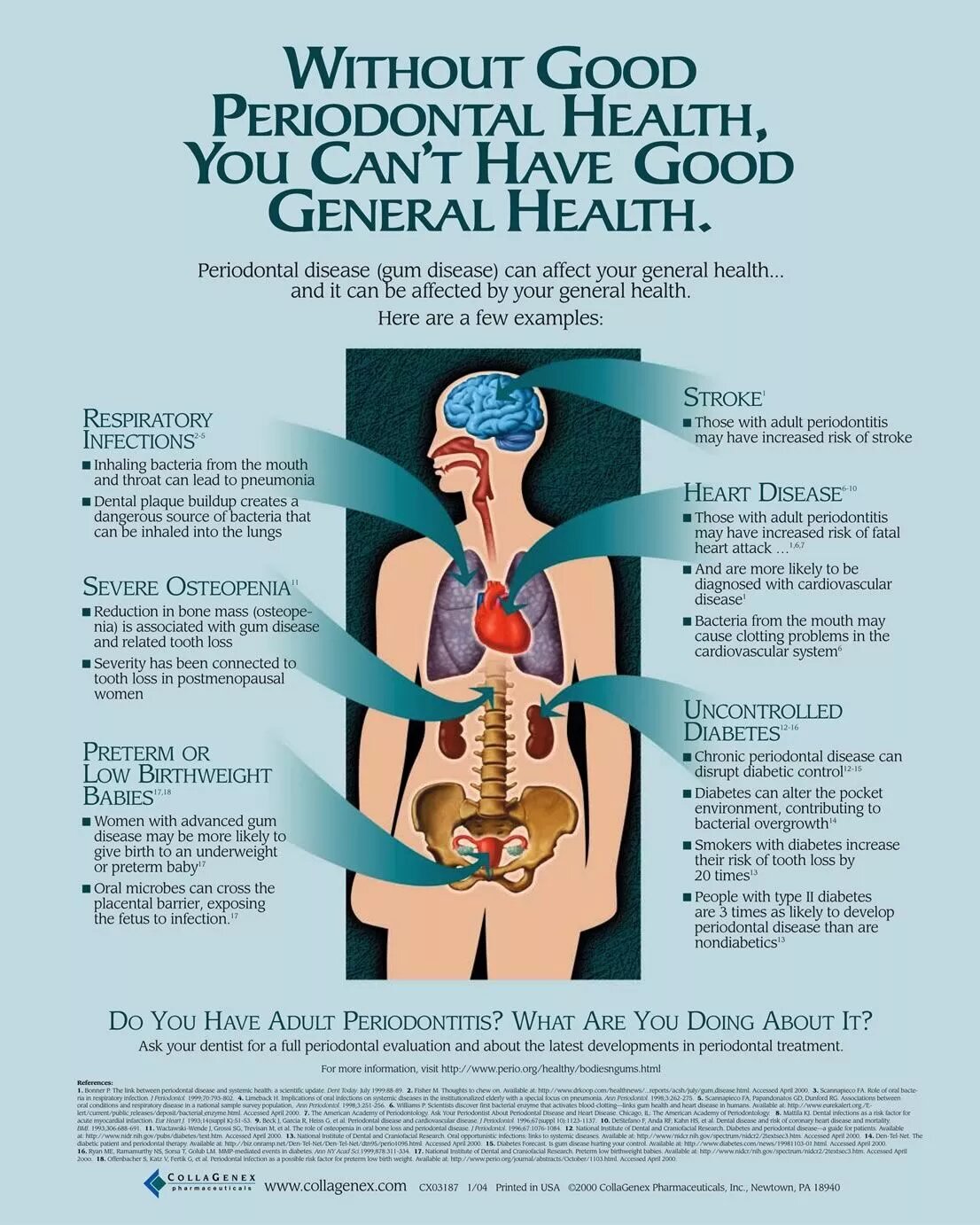Good oral hygiene – flossing, brushing and regular professional cleanings – prevents periodontal disease.
Periodontal gum disease is an infection of soft and hard tissues that surround teeth. It is a bacterial infection that begins with bacterial biofilm formation on the teeth, followed by accumulation of bacterial species that activate many immunoinflammatory processes. It is usually painless and the major cause of tooth loss in adults. There are many forms of gum disease classified according to the severity of the disease. Two major types of periodontal disease are: gingivitis and periodontitis.

Gingivitis
Gingivitis is a milder form of periodontal disease that affects only the gums surrounding teeth. It is reversible and most frequently affects teenagers and young adults. In this stage gums may be red, swollen and bleed easily on brushing or flossing. If the gingivitis is left untreated, it may lead to a more serious form of periodontal disease, periodontitis.
Periodontitis
Periodontitis is chronic inflammation of connective tissue and bone that supports the teeth. Periodontitis always starts with gingivitis. In this stage all signs of gingivitis may be present with addition of several new ones, such as: gums that have pulled away from teeth, periodontal pocket formation, loose or separating teeth, and possibly persistent bad breath. Periodontitis most commonly affects adults. The majority of tooth loss in American adults is due to periodontal disease.
Periodontal Disease Causes
Many factors increase the risk of developing periodontal disease:
- poor oral hygiene
- tobacco use
- diabetes and other systemic diseases
- medications, such as: steroids, some antipsychotic drugs, cancer therapy drugs, oral contraceptive
- genetics
- pregnancy
Periodontal Disease Treatment
Treatment options for periodontal disease depends on the type and progression of disease. Good oral hygiene including daily flossing and brushing is essential to keep it from becoming more serious. When plaque is not removed daily by means of flossing and brushing, hard deposits called tartar or calculus is formed on your teeth, and it forms a matrix that promotes the accumulation of more plaque and bacteria above and below gumline. This makes it difficult to keep teeth clean. Only professional cleaning will remove this plaque trap. It’s possible to have periodontal disease with no warning signs, especially because it never hurts. That is why flossing, brushing and regular professional cleanings will help keep your teeth healthy.

Make an appointment today to have your gums checked.
Learn more about bleeding gums and gum disease treatment
